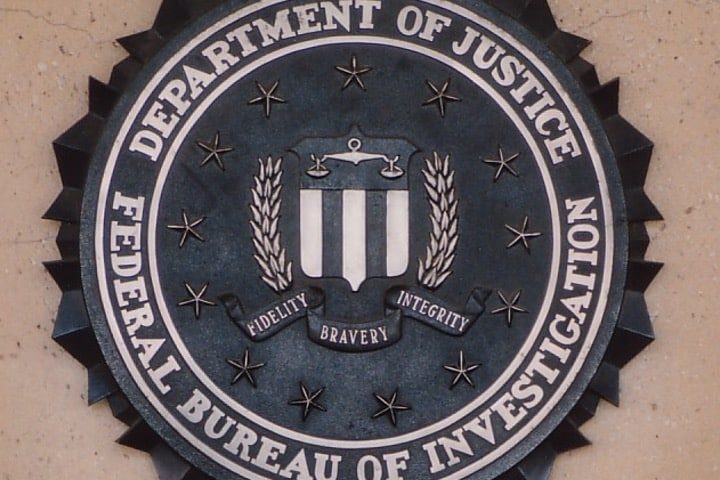
In what would appear to be another case of the Federal Bureau of Investigation’s (FBI) creating a phony terrorist plot to bust, the Justice Department announced on June 8 that a Massachusetts teenager had been arrested “for knowingly concealing the source of material support or resources that he intended to go to a foreign terrorist organization, namely the Islamic State of Iraq and al-Sham (ISIS).”
In fact, the only “terrorist” with whom 18-year-old Mateo Ventura of Wakefield had contact was an undercover FBI agent who had first communicated with him two years earlier. Furthermore, Ventura, whose father says he suffers from “brain development issues,” donated the whopping sum of $1,670 in gift cards to the alleged terrorist, backed out of opportunities to travel to join ISIS, and eventually decided to turn his supposed ISIS contact into the FBI — which, of course, already knew him well.
This is hardly a new tactic for the FBI, which seems to have specialized in such plots since 2001 despite well-deserved public criticism.
“There is still significant use of informants and undercover agents in FBI investigations who aren’t just gathering information about potential crimes but are actively suggesting ideas for crimes or making it easier for people to do the things that they claim they want to do,” Naz Ahmad, acting director of the Creating Law Enforcement Accountability and Responsibility (CLEAR) project at the City University of New York School of Law, told The Intercept. “There are documented cases where the government has provided people everything that they needed to execute a plot. Informants and undercover agents have often been used as a tool in these investigations to prod things along.”
As usual, federal agents chose an easy mark for their scam.
“[My son] was born prematurely, he had brain development issues. I had the school do a neurosurgery evaluation on him and they said his brain was underdeveloped,” Ventura’s father, Paul Ventura, told The Intercept. “He was suffering endless bullying at school with other kids taking food off his plate, tripping him in the hallway, humiliating him, laughing at him.”
According to The Intercept, “Paul Ventura said that in 2021 armed FBI agents … visited his home, informed him that his son had been browsing websites ‘that he shouldn’t be looking at,’ and connected him with what they said was a counselor. After the initial visit, he said he had no knowledge of his son’s ongoing communications with the FBI undercover agent online.”
“Instead of them telling me that he’s doing what he’s doing online and to take his computer away, they let him keep doing it,” said Paul Ventura.
Moreover, the FBI abetted it, putting him in touch with an undercover agent posing as an ISIS member. Ventura, according to the government’s criminal complaint against him, told the agent he wanted to make “hijrah”: migration to territory under ISIS control. The agent, communicating in broken English, egged him on but warned that he must not tell anyone about their conversations.
The Intercept writes:
Ventura continued chatting with the undercover agent about what he could do for ISIS, including potentially fighting for them in a foreign country. The two settled on him buying a $25 Google Play gift card and sending the redemption code to the FBI agent. At the FBI’s direction, the 16-year-old also recorded an audio file of himself elaborately pledging allegiance to the leader of ISIS and transmitting the audio recording over the chat.
Over the next year two years, Ventura continued sending small amounts of cash through gift cards to the FBI agent, mostly through gaming stores like Steam, PlayStation Network, and Google Play. The amounts of his small transactions, which spanned over roughly two years, added up to a total of $965 during the time that he was a juvenile, and another $705 after he became a legal adult.
When it came time to make his hijrah, however, Ventura, by then 17, told his alleged ISIS contact that he could not travel because he had fallen and could “no longer walk.” This, the FBI concluded after interviewing Ventura six days later, was a phony excuse.
This year, having turned 18, Ventura once more appeared ready to travel to join ISIS. In April, after several failed attempts at booking flights because he didn’t have a credit card, Ventura booked a flight to Egypt.
“But instead of boarding the flight, or even leaving his residence on the night it was scheduled, Ventura contacted the FBI’s National Threat Operations Center and reported a tip, stating in a rambling message that he wanted ‘10 million dollars in duffel bags’ in exchange for information on future terrorist attacks,” reports The Intercept.
Ventura continued calling the FBI with the same offer: information to stop terrorist attacks in exchange for cash and legal immunity. He also maintained contact with the undercover agent. Then the FBI swooped in and arrested him, claiming credit for catching a dangerous ISIS financier. Yet, as The Intercept points out, “there is no indication in the allegations against him that Ventura had ever been in touch with the terrorist group.”
Nevertheless, the FBI gets another day in the sun, having allegedly saved America from yet another evil terrorist. Meanwhile, Ventura — who, his dad claims, doesn’t even understand why he was arrested — faces a potential 10 years in prison and $250,000 fine, 150 times the amount he unknowingly donated to the agency.


